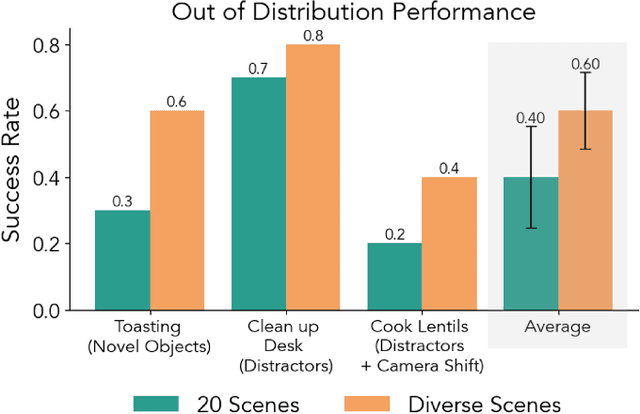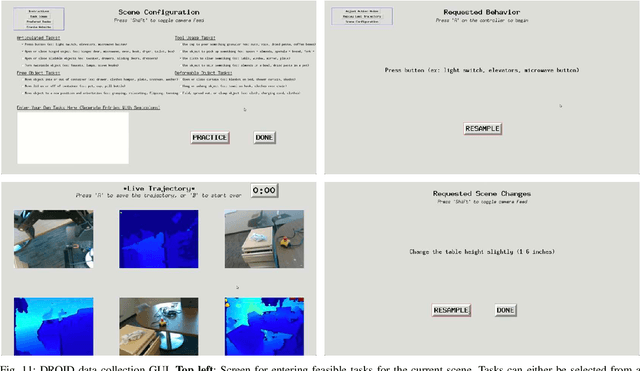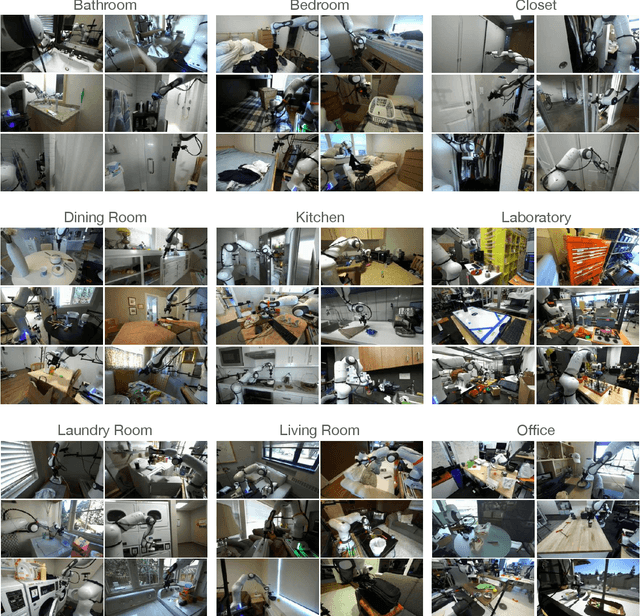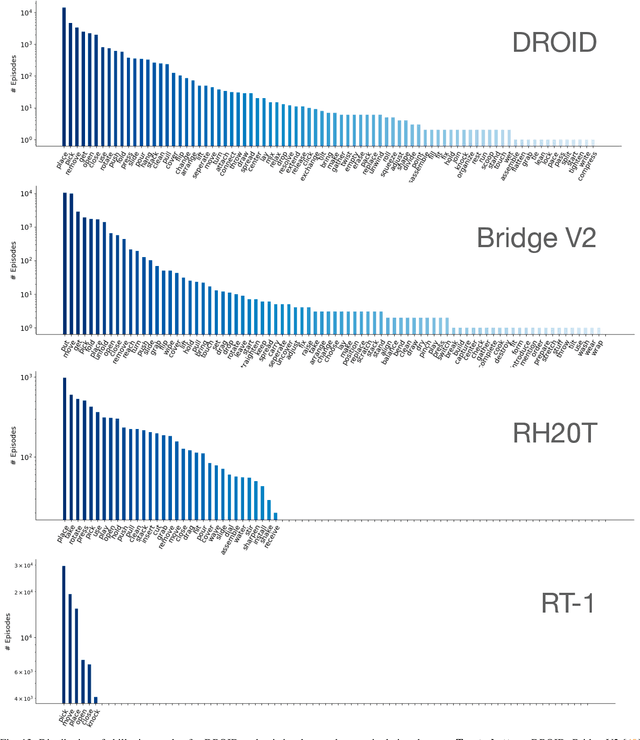Trinity Chung
Task-Optimized Convolutional Recurrent Networks Align with Tactile Processing in the Rodent Brain
May 23, 2025



Abstract:Tactile sensing remains far less understood in neuroscience and less effective in artificial systems compared to more mature modalities such as vision and language. We bridge these gaps by introducing a novel Encoder-Attender-Decoder (EAD) framework to systematically explore the space of task-optimized temporal neural networks trained on realistic tactile input sequences from a customized rodent whisker-array simulator. We identify convolutional recurrent neural networks (ConvRNNs) as superior encoders to purely feedforward and state-space architectures for tactile categorization. Crucially, these ConvRNN-encoder-based EAD models achieve neural representations closely matching rodent somatosensory cortex, saturating the explainable neural variability and revealing a clear linear relationship between supervised categorization performance and neural alignment. Furthermore, contrastive self-supervised ConvRNN-encoder-based EADs, trained with tactile-specific augmentations, match supervised neural fits, serving as an ethologically-relevant, label-free proxy. For neuroscience, our findings highlight nonlinear recurrent processing as important for general-purpose tactile representations in somatosensory cortex, providing the first quantitative characterization of the underlying inductive biases in this system. For embodied AI, our results emphasize the importance of recurrent EAD architectures to handle realistic tactile inputs, along with tailored self-supervised learning methods for achieving robust tactile perception with the same type of sensors animals use to sense in unstructured environments.
FogROS2-FT: Fault Tolerant Cloud Robotics
Dec 06, 2024Abstract:Cloud robotics enables robots to offload complex computational tasks to cloud servers for performance and ease of management. However, cloud compute can be costly, cloud services can suffer occasional downtime, and connectivity between the robot and cloud can be prone to variations in network Quality-of-Service (QoS). We present FogROS2-FT (Fault Tolerant) to mitigate these issues by introducing a multi-cloud extension that automatically replicates independent stateless robotic services, routes requests to these replicas, and directs the first response back. With replication, robots can still benefit from cloud computations even when a cloud service provider is down or there is low QoS. Additionally, many cloud computing providers offer low-cost spot computing instances that may shutdown unpredictably. Normally, these low-cost instances would be inappropriate for cloud robotics, but the fault tolerance nature of FogROS2-FT allows them to be used reliably. We demonstrate FogROS2-FT fault tolerance capabilities in 3 cloud-robotics scenarios in simulation (visual object detection, semantic segmentation, motion planning) and 1 physical robot experiment (scan-pick-and-place). Running on the same hardware specification, FogROS2-FT achieves motion planning with up to 2.2x cost reduction and up to a 5.53x reduction on 99 Percentile (P99) long-tail latency. FogROS2-FT reduces the P99 long-tail latency of object detection and semantic segmentation by 2.0x and 2.1x, respectively, under network slowdown and resource contention.
DROID: A Large-Scale In-The-Wild Robot Manipulation Dataset
Mar 19, 2024



Abstract:The creation of large, diverse, high-quality robot manipulation datasets is an important stepping stone on the path toward more capable and robust robotic manipulation policies. However, creating such datasets is challenging: collecting robot manipulation data in diverse environments poses logistical and safety challenges and requires substantial investments in hardware and human labour. As a result, even the most general robot manipulation policies today are mostly trained on data collected in a small number of environments with limited scene and task diversity. In this work, we introduce DROID (Distributed Robot Interaction Dataset), a diverse robot manipulation dataset with 76k demonstration trajectories or 350 hours of interaction data, collected across 564 scenes and 84 tasks by 50 data collectors in North America, Asia, and Europe over the course of 12 months. We demonstrate that training with DROID leads to policies with higher performance and improved generalization ability. We open source the full dataset, policy learning code, and a detailed guide for reproducing our robot hardware setup.
FogROS2-Sky: Optimizing Latency and Cost for Multi-Cloud Robot Applications
Nov 09, 2023Abstract:This paper studies the cost-performance tradeoffs in cloud robotics with heterogeneous cloud service providers, which have complex pricing models and varying application requirements. We present FogROS2-Sky, a cost-efficient open source robotics platform that offloads unmodified ROS2 applications to multiple cloud providers and enables fine-grained cost analysis for ROS2 applications' communication with multiple cloud providers. As each provider offers different options for CPU, GPU, memory, and latency, it can be very difficult for users to decide which to choose. FogROS2-Sky includes an optimization algorithm, which either finds the best available hardware specification that fulfills the user's latency and cost constraints or reports that such a specification does not exist. We use FogROS2-Sky to perform time-cost analysis on three robotics applications: visual SLAM, grasp planning, and motion planning. We are able to sample different hardware setups at nearly half the cost while still create cost and latency functions suitable for the optimizer. We also evaluate the optimizer's efficacy for these applications with the Pareto frontier and show that the optimizer selects efficient hardware configurations to balance cost and latency. Videos and code are available on the website https://sites.google.com/view/fogros2-sky
 Add to Chrome
Add to Chrome Add to Firefox
Add to Firefox Add to Edge
Add to Edge